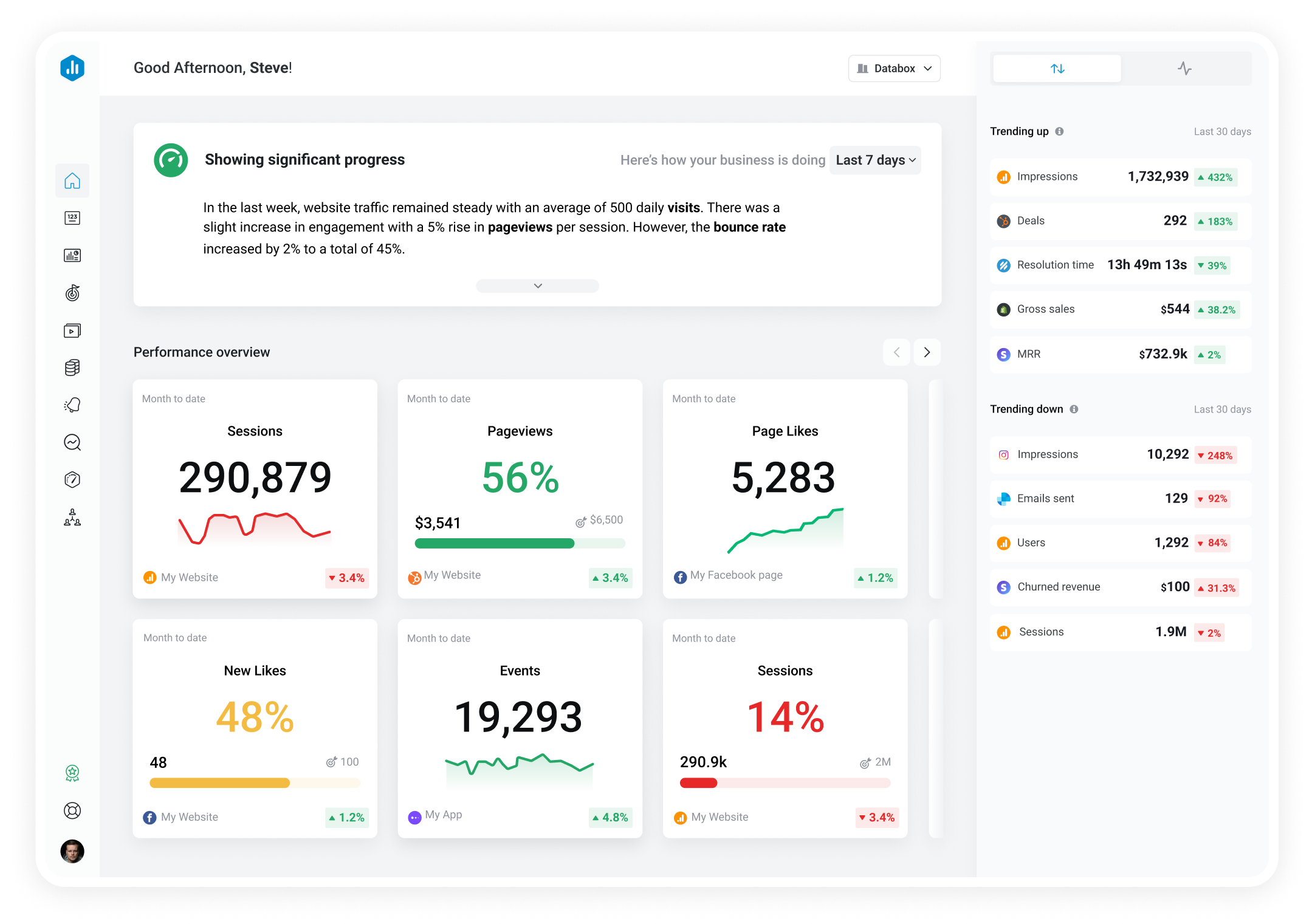Track all of your key business metrics from one screen
GET STARTED
 Moz
Domain Authority
Moz
Domain Authority Domain Authority is a search engine ranking score developed by MOZ that predicts a website's ability to rank on search engine result pages (SERPs) based on various factors such as link equity, content quality, and website popularity, on a scale of 1 to 100.
With Databox you can track all your metrics from various data sources in one place.
Domain Authority (DA) is a search engine ranking score developed by Moz that predicts how well a website will rank on search engine result pages (SERPs). The score ranges from 1 to 100, with higher scores indicating a higher likelihood of ranking well.
DA takes into account various factors, including the number and quality of backlinks, website age, and content relevance. While it is not a direct metric used by search engines, it serves as a valuable reference point for SEO professionals and marketers to assess a site’s potential search performance.
A good Domain Authority score varies depending on factors such as industry, competition, and website type. Generally, newer websites or those in highly competitive niches might have lower DAs, while established and authoritative sites could have higher scores.
A Domain Authority of around 30-50 is considered average, while scores above 60 are considered good, and scores above 80 are exceptional.
According to our Ahrefs Benchmarks for All Companies, the Ahrefs DA should be at least 30.
Another similar group, Semrush Benchmarks for All Companies, has a slightly lower authority score: 20.
However, it is essential to remember that DA should not be the sole metric to evaluate a website’s success; it is more valuable when compared to competitors in the same niche.
Keep up with future trends and instantly compare your performance to companies just like yours, regardless of your industry. Join our Benchmark Groups—it’s anonymous and free for everyone!
Boosting Domain Authority requires a consistent and strategic approach and several tactics can positively impact a website’s DA:
More resources to help you improve:

Used to show a simple Metric or to draw attention to one key number.

Used to illustrate numerical proportions through the size of the slices.

Used to show comparisons between values.
Databox is a business analytics software that allows you to track and visualize your most important metrics from any data source in one centralized platform.
To track Domain Authority using Databox, follow these steps:
 Goals
Goals Scorecards
Scorecards Metric Digest
Metric Digest Metric Builder
Metric Builder Data Calculations
Data Calculations Performance Screen
Performance ScreenThis dashboard gives you a full overview of your SEO performance that can help you understand the overall health and authority of your website.

This dashboard includes top SEO key performance indicators that can help you understand the overall health and authority of your website in the eyes of a search engine like Google.




To find a website’s Domain Authority, you can use Moz’s Link Explorer tool or other SEO software that provides this metric, such as Semrush and Ahrefs. Enter the website’s URL, and the tool will display its DA score along with additional SEO insights.
Yes, Domain Authority matters as it provides a relative measure of a website’s authority and potential to rank higher in search results. However, it should not be the only metric considered. Combining DA with other SEO factors gives a more comprehensive view of a website’s overall performance.
Domain Authority indirectly influences rankings. A higher DA suggests a website has a strong link profile and is likely to have valuable content, making it more appealing to search engines. It’s still recommended to focus on overall SEO efforts, as DA is just one of many factors considered by search engines when determining rankings.
